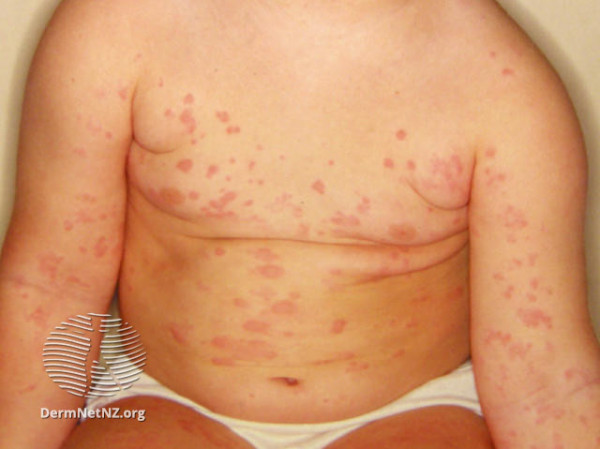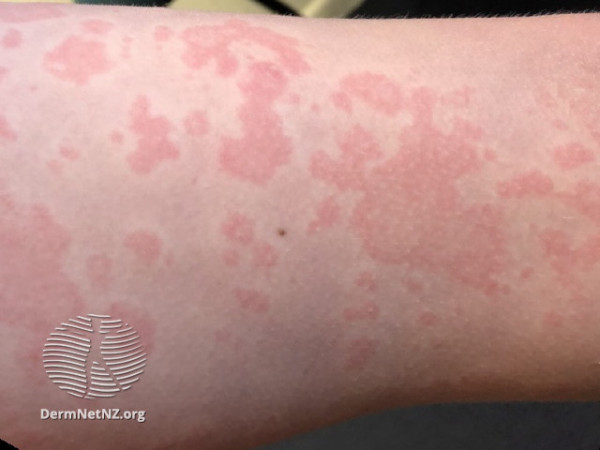What causes hives?
Many factors can trigger hives and it can be hard to figure out the cause. Hives can be caused by:
- a viral infection
- reaction to medication or food
- insect stings
- physical contact with something that causes a allergic reaction (a plant or latex in rubber gloves).
If your child keeps getting hives, try to figure out what is causing the rash. Does your child get hives when they eat a specific food, go to a certain place or take a particular type of medication?

(DermNet NZ)

(DermNet NZ)
Treatment
If your little one is experiencing hives, you can help:
- try to minimise itching and irritating your child’s skin
- apply a soothing anti-itch medication to the area with hives
- give your child a cool bath to relive itching
- you may give your child an antihistamine, after discussing it with your GP or pharmacist.
When to visit a doctor
Hives usually settle down within a day or two and typically cause no harm. However, sometimes hives can be a sign of a serious allergic reaction, drug reaction or even life-threatening anaphylaxis (difficulty breathing, swelling of the tongue and throat).
If you are worried about your child, or you aren’t sure what to do, call PlunketLine or ring your doctor.
When to call 111
Call 111 in New Zealand immediately, if your child has:
- a rash within 20 minutes of eating or taking a new medicine
- swelling in the lips, mouth or airway that makes it hard to breathe.
Anaphylaxis